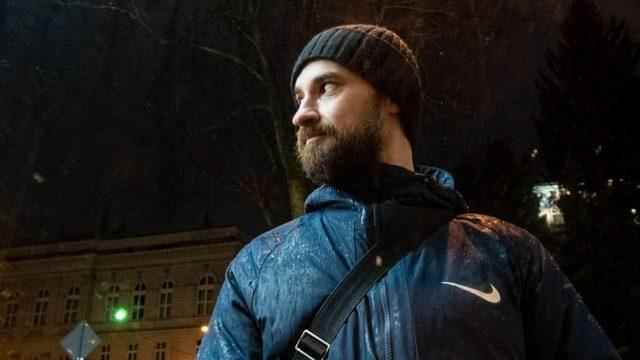Mariupol fell into the hands of Russian forces as a result of the continuous attacks for three months. The Ukrainian army has announced that it is ending its duties in the besieged port. Mariupol has become a symbol of both Russia’s brutal attacks and Ukraine’s stubborn resistance.
On Wednesday, February 23, Ivan Stanislavsky left his camera bag in his office. He was going to a friend’s house to see the design for his new book examining Mariupol’s Soviet-era frescoes, and he didn’t want to drag his supplies with him. Anyhow, when he returned to the office the next day, he could get his bag.
But the next day he was standing across the street from his locked and abandoned office, hearing the dreadful voices from the east of the city. Mariupol was under fire.
When the fighting raged and gunfire could be heard from the west of the city, Ivan took the mattress in his house and moved into the corridor. He placed a huge collection of art books, including the Ukrainian Encyclopedia of Rock Music, as a shield against the windows of his house in Primorsky district.
“My library was not wasted,” said the 36-year-old photographer, who is also a spokesperson for the Mariupol football team, which plays in the Ukrainian First League.
At the other end of the city, in the Kalmiusky district, businessman Yevhen was also taking his own precautions.
47-year-old Yevhen had asked his family to pack their belongings as soon as possible to escape from the city.
But when he got home from work, he found that nothing was packed. His family refused to leave the city.
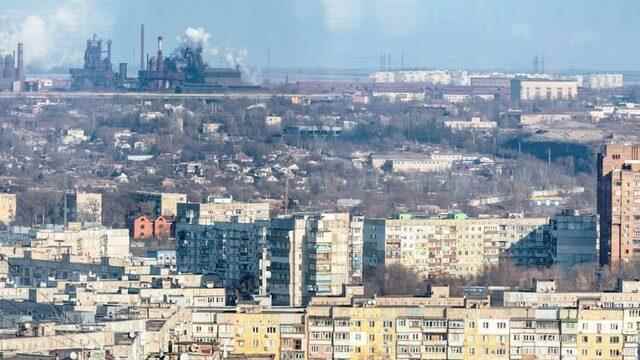
In another flat in the same neighborhood, metallurgists working at a nearby steel mill, Nataliia, 43, and Andrii, 41, were slicing the two loaves of bread they had succeeded in buying, breaking them into pieces and placing them in front of the window to dry for later days.
Volodymyr, a 52-year-old paramedic, was also in the kitchen of his house. He was trying to digest the news he heard. His throat tightened when he heard that the Russian army was advancing in the village of Chonhar, on a strategic road connecting Crimea to the west. This was obviously a coordinated attack.
The ambulance man phoned. He asked Volodymyr not to answer any non-emergency phone calls. “Find the injured immediately,” he said.
Mariia, 22, a fresh graduate of engineering school, thought the first explosion she heard was just thunder. Then came the second explosion.
Mariia, who lives in Primorsky, in the same neighborhood as Ivan, said, “We had no idea what to do. I didn’t have time to think about my future, my plans, or anything. I could only think about what to eat and drink. And what to do with my cats.”
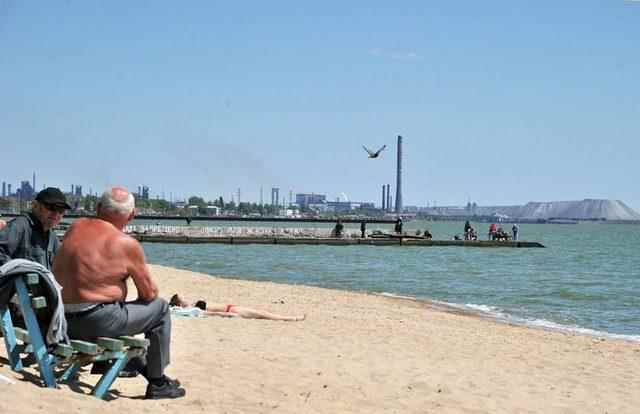
He suddenly understood why he had recently come to the soldiers’ paint shop and bought yellow and blue tapes. So they would embroider the colors of the Ukrainian flag on their uniforms.
Four days after the start of the war, as the fighting approached the city, Ivan and his wife took shelter in the basement of their neighborhood supermarket. Not only could they be safe here, but Ivan was able to contain some of his growing anxiety, as he heard less sound of the shelling.
Daily life had regressed to the point of meeting the minimum needs.
“We were starting to live like primitive people,” Ivan told the BBC in the city of Lviv, where he left his home and took refuge:
We were cutting tree branches, making a fire, and cooking on the fire we lit. I’ve even heard of people catching and cooking pigeons.”
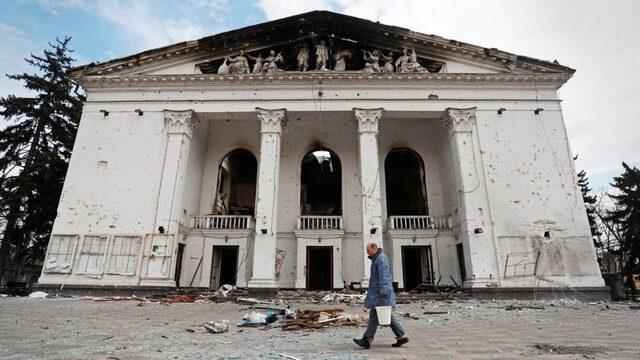
As the order of the settled life around him was falling more and more every moment, he began to keep a diary carefully.
“The Stone Age is back,” he wrote in his March 6 entry in his online diary.
He watched and recorded his Ukrainian compatriots looting abandoned shops, scavenging everything from computers to refrigerators, from swimsuits to underwear.
One evening, their conversation in the basement of the supermarket was interrupted by the intervention of a drunk woman. “Enjoy yourselves,” said the woman, handing her a stolen California Merlot from a store shelf on nearby Italiiska Street.
But hearing that medical supplies and even cash registers had been stolen, Ivan was starting to feel sick.
“Our own worst enemies are ourselves,” he wrote.
Is that how the strongest wins, he wondered. After a while, every day turned into a war mood.
Within weeks, Mariupol was flattened. The Russian army besieged the city and targeted its energy and water resources. On March 9, a Russian airstrike hit a maternity hospital in the city, and a week later a bomb fell on the theater building, which was clearly stated to be a civilian refuge.
Ivan was horrified at how quickly everything was moving.
“The whole city, the entire infrastructure of the city, the electrical grids, the logistics, everything collapsed in a matter of days,” he said.
He felt that the people living underground at night were becoming more and more passive.
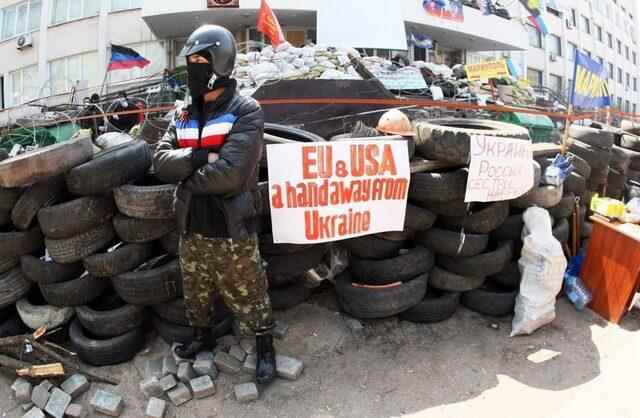
“Waiting is all you can do while you’re in the bunker,” he wrote:
“Some are waiting for the spring to come. Some are waiting for the morning to come. Some are for the war to be over. And some are waiting for a bomb to come and kill everyone.”
All this was happening at the very moment when Mariupol was about to cross a threshold. In the past, money began to flow to the city, which was only known for heavy industry and war.
Mariupol stood on the edge of Ukraine’s tensions with the separatist Donetsk and Luhansk regions.
When the fighting broke out in 2014, the government had briefly lost control of Mariupol.
At least 30 civilians were killed in a rocket attack on the east side of the city in January 2015.
But the natural flow of life in the city continued, and the Ukrainian government declared Mariupol the capital of the Donetsk-Oblast region instead of the separatist Donetsk.
According to research by a Kyiv-based independent think tank, half the city described itself as Russian, while 80 percent said it was Ukrainian.
Nataliia, whose father is Russian, says that when the bombardment of Mariupol began, she apologized to her husband and was ashamed of being a Russian.
Engineer Mariia also states that before the war she always spoke her mother tongue, that is, Russian, but since the bombing she “began to hate everything Russian, Russian movies, Russian literature, Russian”.
Mariupol was not one of the priorities of the Ukrainian government from the very beginning. Faced with Russian attacks from many fronts, Ukrainian President Volodymyr Zelenskiy gave priority to protecting the capital, Kiev.
This was to turn a blind eye to one of the pre-war goals of the Russian forces: to allow a land corridor between the Crimea, which was occupied by the Russians in 2014, and the separatists in Donbas.
It was a bitter recipe for those who were stuck in the city fighting for their lives. Ivan could no longer bear what he saw.
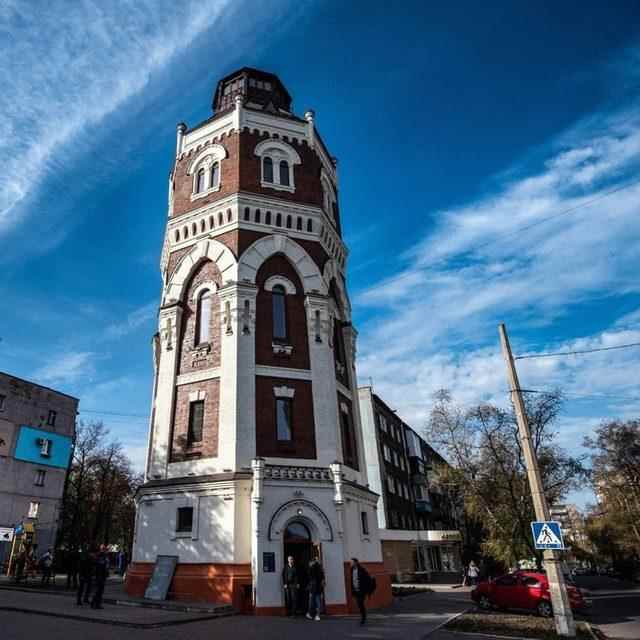
In front of the Dzerkalnyy supermarket, corpses were piling up against a wall. Those who used to queue to buy food now queue for corpses to be buried.
On March 15, Ivan left Mariupol with his family of four and his cat, which somehow managed to stay intact.
He stopped at a point overlooking the city and looked at what was left behind.
“I’m saying goodbye here softly. Something tells me I’ll never come back,” he wrote in his diary.
A day later, Mariia and her five relatives left the city, taking a few belongings and their family’s dog, and jumping into the car.
The next day Nataliia and Andreii hit the road. Neighbors said they could go to a nearby city with their own car.
Yevhen was in the same convoy with his wife and a relative. Now he was helping other compatriots fleeing Mariupol in the city of Dnipro.
Health worker Volodymyr chose to stay in Mariupol. She had to take care of her elderly mother. But his mother died soon after due to food and medicine shortages.
He also joined those who left the city on April 21. He now volunteers at a hospital in Dnipro.
“There are thousands, tens of thousands of families like mine,” says Volodymyr.
“How many people died? How many families were torn apart?”
